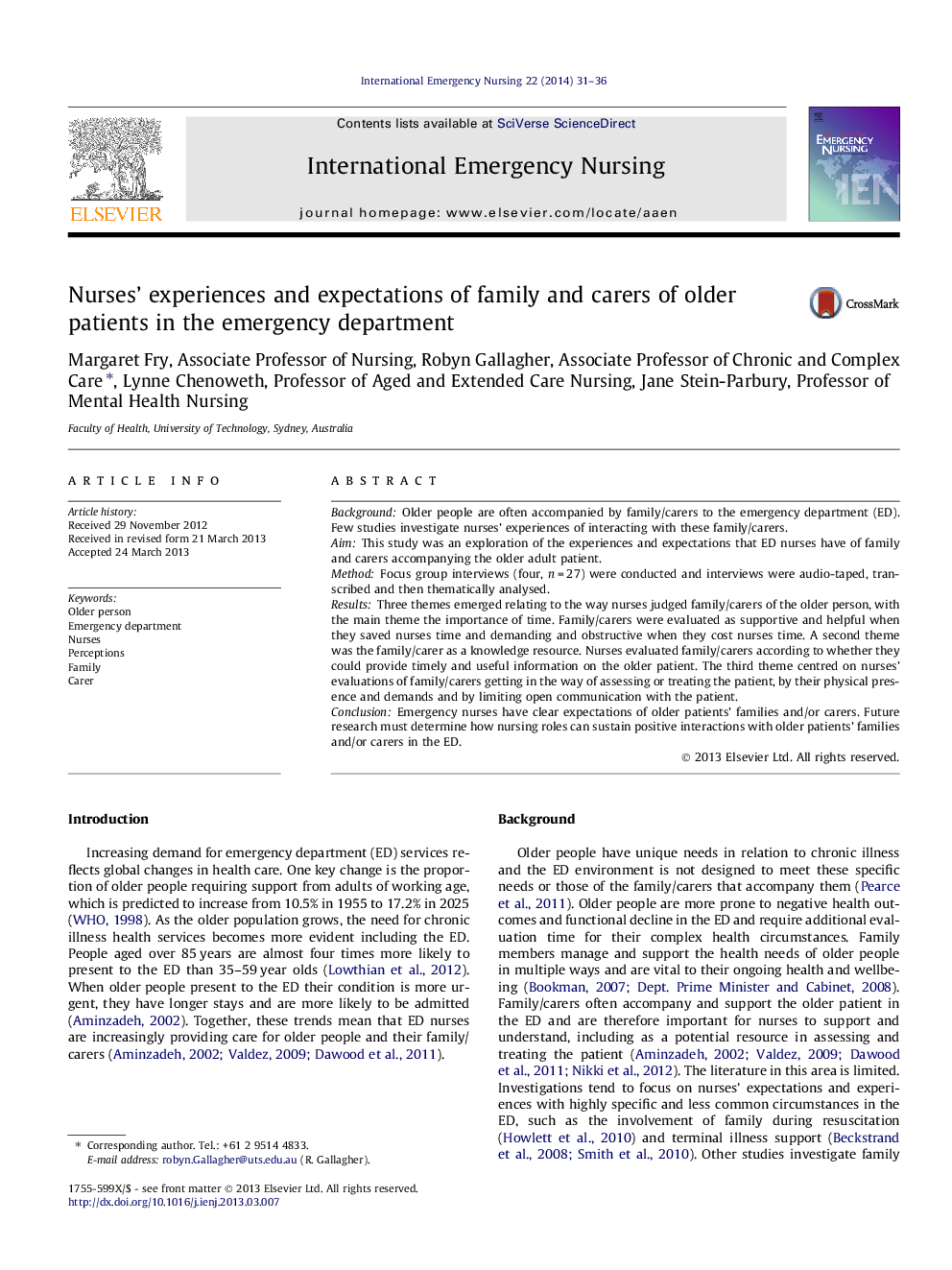| Article ID | Journal | Published Year | Pages | File Type |
|---|---|---|---|---|
| 2609577 | International Emergency Nursing | 2014 | 6 Pages |
BackgroundOlder people are often accompanied by family/carers to the emergency department (ED). Few studies investigate nurses’ experiences of interacting with these family/carers.AimThis study was an exploration of the experiences and expectations that ED nurses have of family and carers accompanying the older adult patient.MethodFocus group interviews (four, n = 27) were conducted and interviews were audio-taped, transcribed and then thematically analysed.ResultsThree themes emerged relating to the way nurses judged family/carers of the older person, with the main theme the importance of time. Family/carers were evaluated as supportive and helpful when they saved nurses time and demanding and obstructive when they cost nurses time. A second theme was the family/carer as a knowledge resource. Nurses evaluated family/carers according to whether they could provide timely and useful information on the older patient. The third theme centred on nurses’ evaluations of family/carers getting in the way of assessing or treating the patient, by their physical presence and demands and by limiting open communication with the patient.ConclusionEmergency nurses have clear expectations of older patients’ families and/or carers. Future research must determine how nursing roles can sustain positive interactions with older patients’ families and/or carers in the ED.
